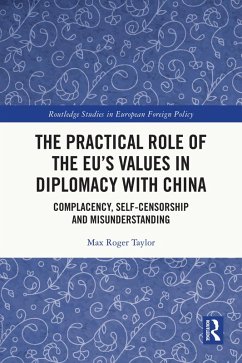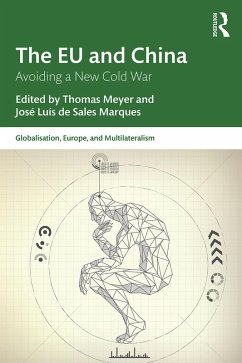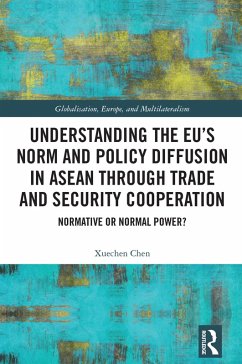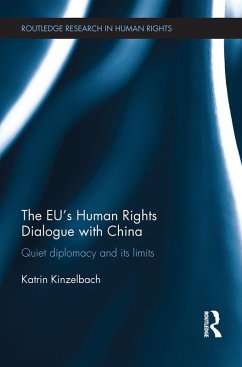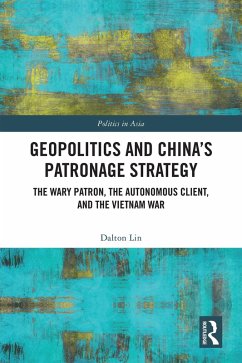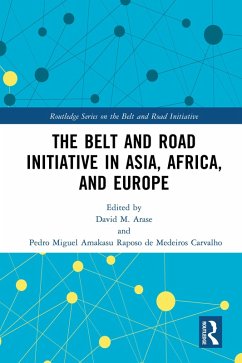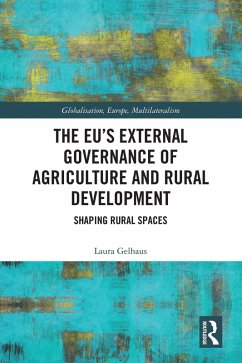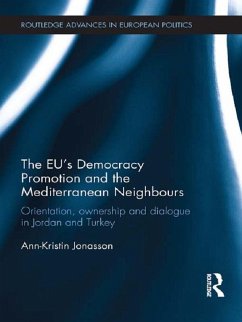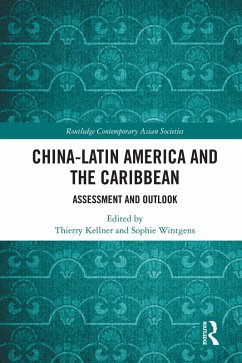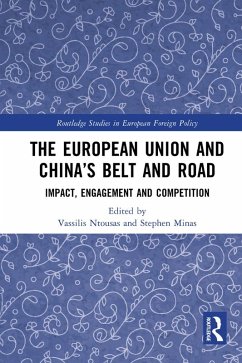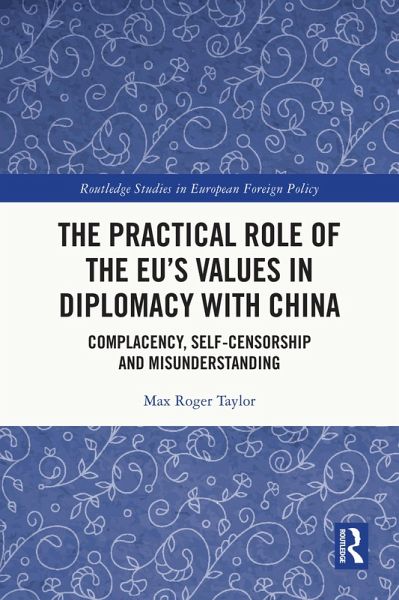
The Practical Role of The EU's Values in Diplomacy with China (eBook, PDF)
Complacency, Self-Censorship and Misunderstanding
Versandkostenfrei!
Sofort per Download lieferbar
42,95 €
inkl. MwSt.
Weitere Ausgaben:

PAYBACK Punkte
21 °P sammeln!
Delivering a ground-breaking analysis of the EU's diplomatic meetings (or dialogues) with China, this book reveals how the EU's values rarely feature in exchanges, due to ingrained cultures of complacency and self-censorship amongst EU officials.Based on extensive interviews, and focusing on individual perceptions and practices, the book also highlights how intercultural misunderstanding and unreflective beliefs contribute to this troubling status quo with serious implications. Furthermore, these dynamics run contrary to the Lisbon Treaty (2009) - where the EU states that its values inform its...
Delivering a ground-breaking analysis of the EU's diplomatic meetings (or dialogues) with China, this book reveals how the EU's values rarely feature in exchanges, due to ingrained cultures of complacency and self-censorship amongst EU officials.
Based on extensive interviews, and focusing on individual perceptions and practices, the book also highlights how intercultural misunderstanding and unreflective beliefs contribute to this troubling status quo with serious implications. Furthermore, these dynamics run contrary to the Lisbon Treaty (2009) - where the EU states that its values inform its external relations - threatening the rules-based order that upholds the universal values and international norms the EU shares. At a time of flux in EU-China relations and geopolitical instability, this book's timely insights will be of great interest and value to scholars and practitioners alike.
This book will be of key interest to scholars and students of European (Union) foreign policy and diplomacy, EU-China relations, Chinese foreign policy, human rights diplomacy, sustainable development, trade policy and more broadly in European and Asian Studies, and International Relations.
Based on extensive interviews, and focusing on individual perceptions and practices, the book also highlights how intercultural misunderstanding and unreflective beliefs contribute to this troubling status quo with serious implications. Furthermore, these dynamics run contrary to the Lisbon Treaty (2009) - where the EU states that its values inform its external relations - threatening the rules-based order that upholds the universal values and international norms the EU shares. At a time of flux in EU-China relations and geopolitical instability, this book's timely insights will be of great interest and value to scholars and practitioners alike.
This book will be of key interest to scholars and students of European (Union) foreign policy and diplomacy, EU-China relations, Chinese foreign policy, human rights diplomacy, sustainable development, trade policy and more broadly in European and Asian Studies, and International Relations.
Dieser Download kann aus rechtlichen Gründen nur mit Rechnungsadresse in A, B, BG, CY, CZ, D, DK, EW, E, FIN, F, GR, HR, H, IRL, I, LT, L, LR, M, NL, PL, P, R, S, SLO, SK ausgeliefert werden.




